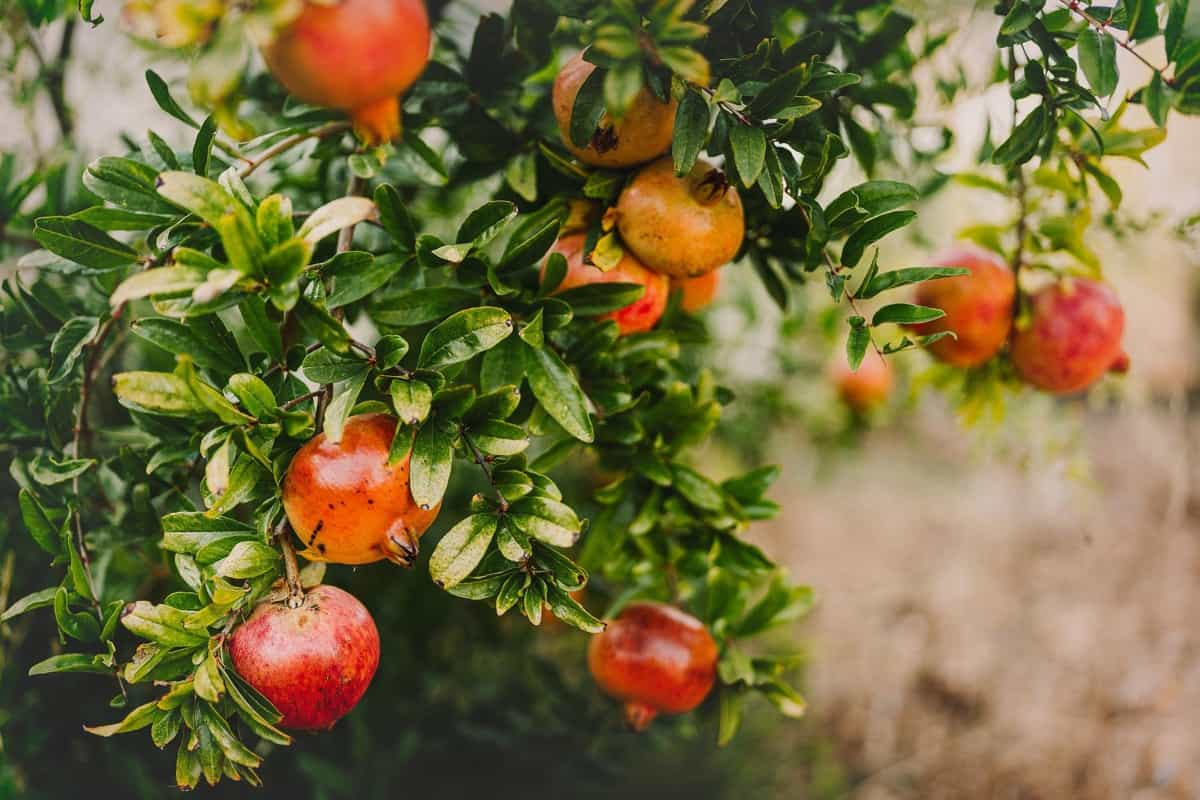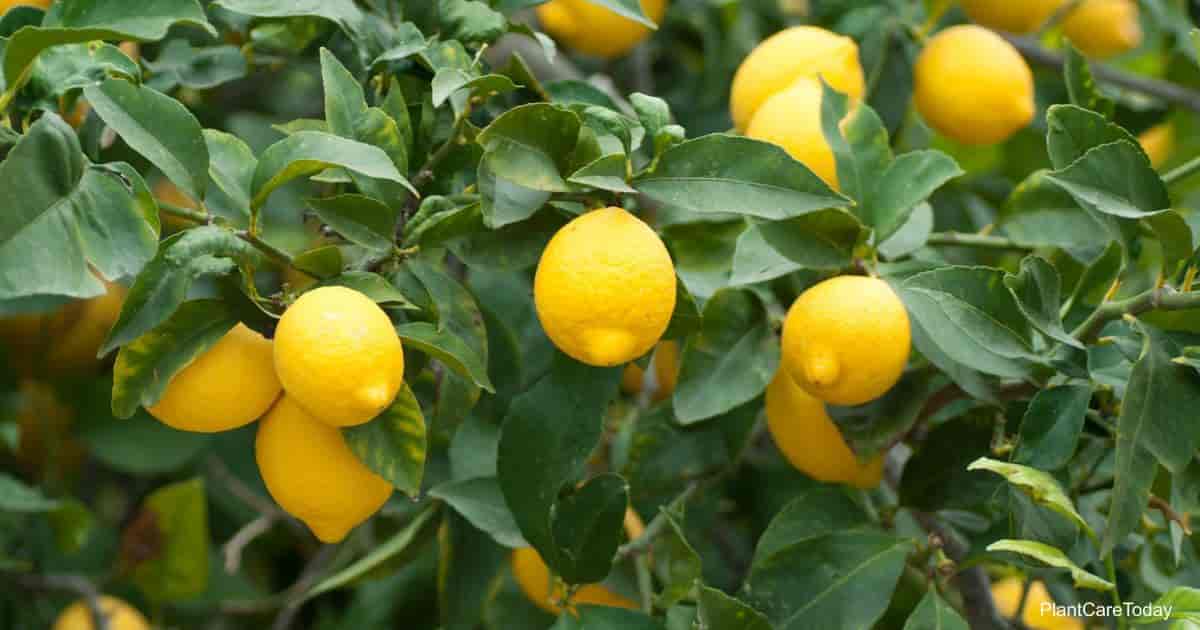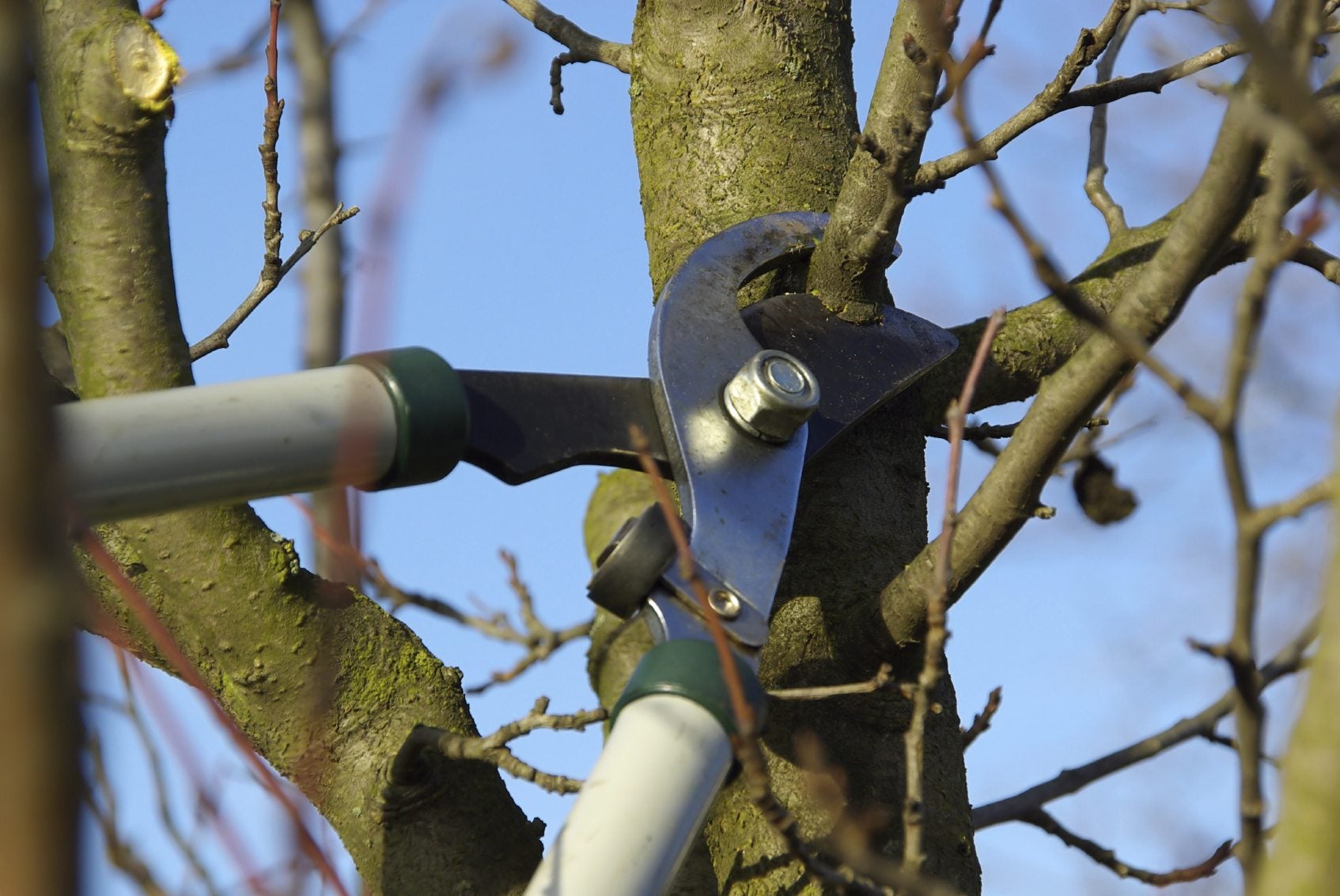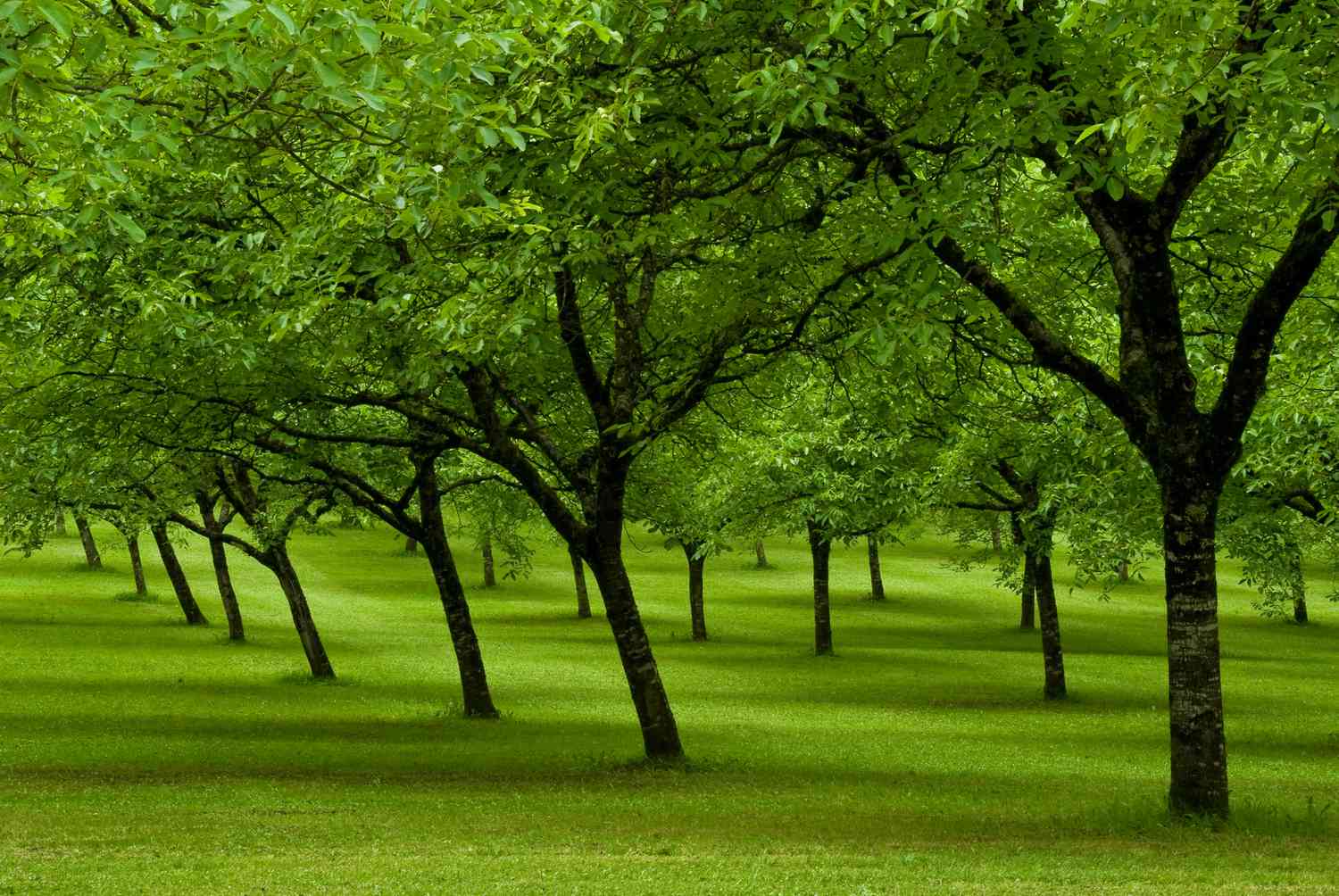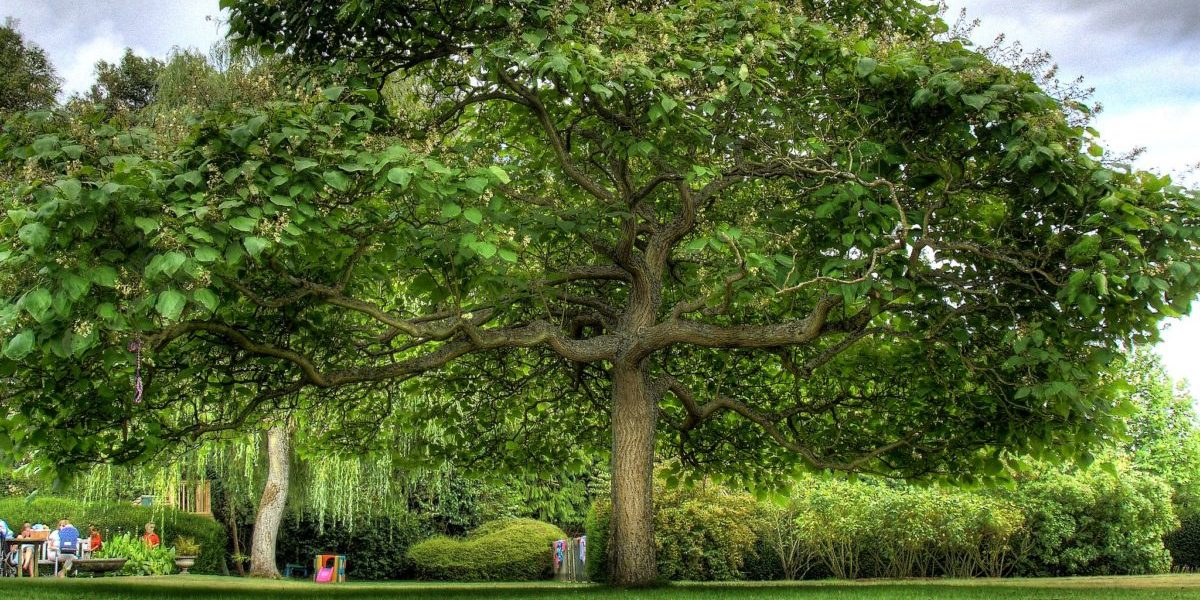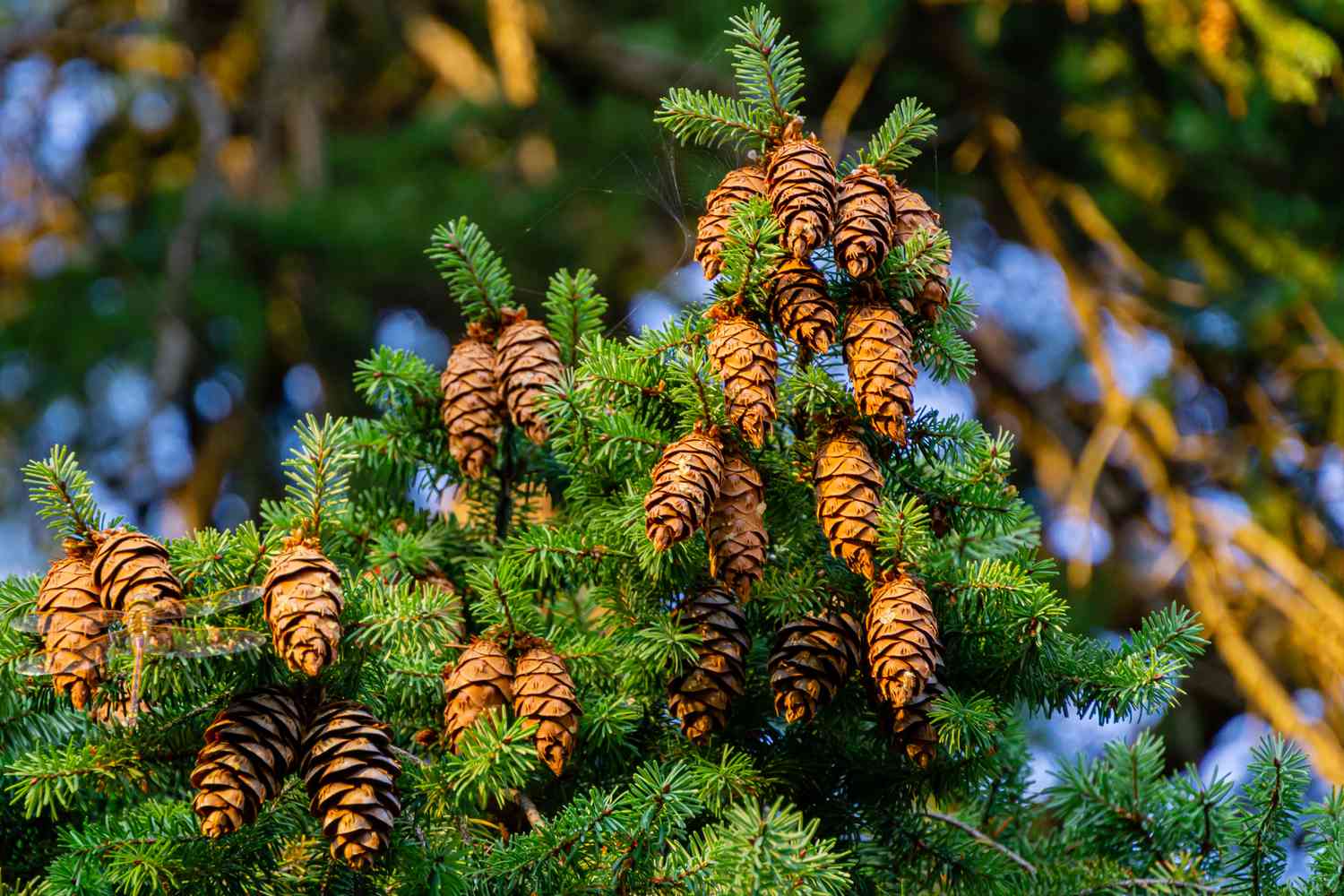Home>Types of Gardening>Ornamental Gardening>What Are The Best Trees For Privacy
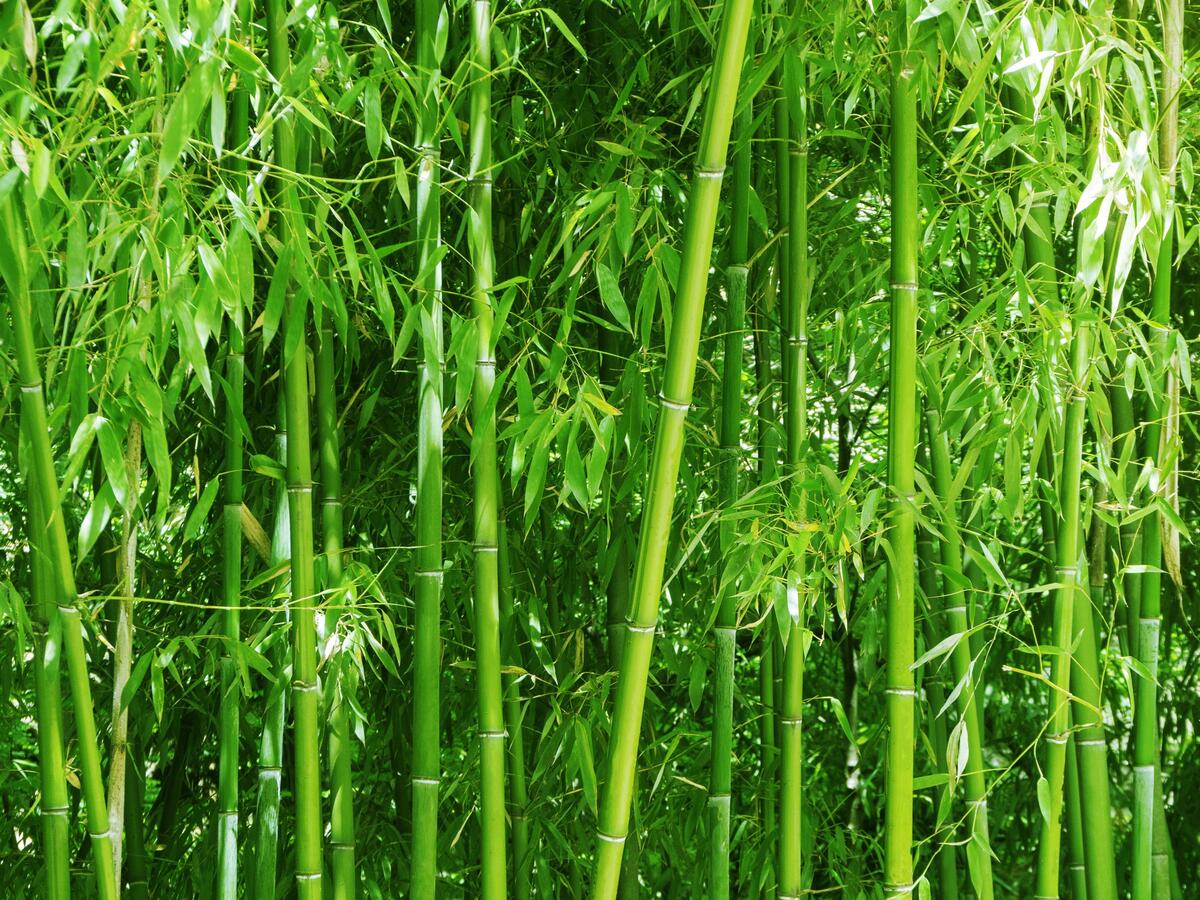

Ornamental Gardening
What Are The Best Trees For Privacy
Modified: January 22, 2024
Discover the top ornamental gardening trees to enhance your privacy. Find out which trees provide the best combination of beauty and seclusion for your outdoor space.
(Many of the links in this article redirect to a specific reviewed product. Your purchase of these products through affiliate links helps to generate commission for Chicagolandgardening.com, at no extra cost. Learn more)
Table of Contents
Introduction
When it comes to creating a private outdoor space, privacy is of utmost importance. Whether you’re looking to shield your yard from prying eyes, block out noise from the street, or simply create a secluded oasis where you can relax and unwind, choosing the right trees for privacy is essential. Not only do trees provide a natural and visually appealing way to create privacy, but they also offer additional benefits such as shade, wind protection, and improved air quality.
However, selecting the best trees for privacy involves careful consideration of various factors. It’s important to evaluate the overall size of your yard, the desired height and width of the trees, the climate and soil conditions in your area, and your personal preferences in terms of aesthetics and maintenance.
In this article, we will explore the top 10 trees that are renowned for their privacy-enhancing qualities. Each of these trees possesses unique characteristics that make them excellent choices for creating a secluded and intimate outdoor space.
Before diving into the specific tree recommendations, let’s take a closer look at the factors you should consider when choosing trees for privacy.
Factors to Consider when Choosing Trees for Privacy
When selecting trees for privacy, there are several important factors to consider. These factors will help you make an informed decision and ensure that the trees you choose are well-suited to your specific needs and environment. Here are some key factors to keep in mind:
- Growth Rate: Consider the growth rate of the trees you are considering. If you need privacy quickly, opt for fast-growing varieties. However, keep in mind that fast-growing trees may require more maintenance and may not be as long-lasting as slower-growing options.
- Mature Size: Take into account the ultimate height and width of the trees at maturity. You want to make sure the trees you choose won’t outgrow the available space or interfere with power lines, structures, or other plants.
- Evergreen vs. Deciduous: Decide whether you prefer evergreen trees that maintain their foliage year-round or deciduous trees that lose their leaves in the winter. Evergreen trees provide year-round privacy, while deciduous trees may offer additional benefits such as shade in the summer and allow sunlight to filter through during the winter.
- Soil and Climate Conditions: Consider the soil type and climate in your area. Some trees thrive in specific soil conditions, while others tolerate a wide range of soils. Additionally, certain trees are better suited for cold climates, while others are more suitable for warm or tropical climates.
- Root System: Investigate the root system of the trees. Some trees have shallow root systems that can potentially damage structures or interfere with underground utilities. Others have deep, non-invasive root systems that offer stability and require less maintenance.
- Maintenance Requirements: Assess the level of maintenance required for the trees you are considering. Some trees may need regular pruning, shaping, or fertilizing, while others are relatively low-maintenance.
- Aesthetics: Consider the visual appearance of the trees. Determine whether you prefer a formal, sculpted look or a more natural, relaxed appearance. Take into account the color, texture, and shape of the foliage.
By considering these factors, you can choose trees that not only provide privacy but also thrive in your specific environment, enhancing the overall beauty and functionality of your outdoor space. Now let’s explore the top 10 trees that are ideal for creating privacy.
Best Trees for Privacy
Creating privacy in your outdoor space can be achieved by strategically planting trees that offer both beauty and seclusion. Here are the top 10 trees that are renowned for their privacy-enhancing qualities:
- American Arborvitae: Known for its fast growth and dense foliage, the American Arborvitae is a popular choice for creating a privacy screen. Its feathery evergreen foliage provides year-round coverage.
- Leyland Cypress: This fast-growing evergreen tree is widely used for privacy hedges. It forms a dense, tall screen and tolerates a wide range of soil conditions.
- Emerald Green Arborvitae: With its narrow and compact form, the Emerald Green Arborvitae is perfect for smaller spaces. It retains its vibrant green color throughout the year.
- Eastern Redcedar: This native North American evergreen tree is renowned for its distinct blue-green foliage. It provides an excellent privacy barrier and is highly adaptable.
- Thuja Green Giant: As one of the fastest-growing evergreen trees, the Thuja Green Giant can quickly form a tall and dense privacy screen. It thrives in a variety of soil types and climates.
- Arizona Cypress: Ideal for warm climates, the Arizona Cypress features beautiful blue-green foliage. It offers excellent privacy with its columnar shape.
- Cryptomeria: Known for its elegant and feathery foliage, the Cryptomeria is a popular choice for privacy screens. It grows well in a variety of climates and soils.
- Nellie Stevens Holly: This evergreen hybrid holly tree is prized for its glossy, dark green leaves and vibrant red berries. It forms a dense screen and provides year-round interest.
- Cherry Laurel: With its lustrous dark green foliage, the Cherry Laurel is a versatile tree that can be trained as a hedge or grown as a standalone privacy tree. It tolerates a variety of soil conditions.
- Bamboo: For a more exotic and unique privacy solution, consider planting bamboo. Certain varieties of bamboo are fast-growing and can provide a dense, tall screen.
These trees offer various options in terms of growth rate, size, and visual appeal, allowing you to select the perfect trees for your privacy needs. Remember to carefully consider the specific requirements of each tree and ensure they align with your outdoor space and personal preferences.
By choosing the right trees for privacy, you can create a tranquil and secluded haven where you can enjoy the beauty of nature and escape the prying eyes of the outside world.
American Arborvitae
The American Arborvitae, also known as Thuja occidentalis, is a popular choice for creating a privacy screen. This evergreen tree features dense foliage and a fast growth rate, making it an excellent option for quickly establishing privacy in your outdoor space.
The American Arborvitae has a pyramidal shape, with soft, feathery foliage that ranges in color from dark green to yellow-green. Its scale-like leaves are arranged in flattened sprays, providing a lush and vibrant appearance. This tree retains its foliage year-round, offering a natural and consistent screen for privacy.
One of the advantages of the American Arborvitae is its adaptability to different soil types and climates. It thrives in a variety of conditions, from moist soil to well-drained soil, and can tolerate both full sun and partial shade. It is also relatively low-maintenance, requiring minimal pruning and shaping.
When planning to use American Arborvitae for privacy, it’s important to consider its mature height and width. This tree can reach a height of 40 to 60 feet and has a spread of 10 to 15 feet. Therefore, it is suitable for larger yards or spaces where a tall screen is desired.
To create a dense privacy screen, it is recommended to plant American Arborvitae trees in a row, spacing them 3 to 4 feet apart. This will allow the trees to grow together and create a solid barrier. Regular watering and occasional fertilization will promote healthy growth and ensure the longevity of your privacy screen.
Overall, the American Arborvitae is a reliable and versatile tree for creating privacy in your outdoor space. Its fast growth, dense foliage, and adaptability make it a popular choice among homeowners seeking a natural and aesthetically pleasing way to shield their yards from prying eyes.
Leyland Cypress
The Leyland Cypress, scientifically known as Cupressocyparis leylandii, is a fast-growing evergreen tree that is often used for creating privacy hedges and screens. This popular tree is valued for its beautiful, dense foliage and its ability to quickly form a tall and thick barrier.
The Leyland Cypress has an upright and columnar growth habit, making it an ideal choice for narrow spaces or areas where a tall screen is desired. It can reach heights of up to 70 feet and has a spread of about 15 to 25 feet. Its feathery, blue-green foliage adds an attractive touch to any landscape, providing a visually appealing backdrop for your privacy needs.
One of the notable advantages of the Leyland Cypress is its adaptability to various soil conditions. It can thrive in both wet and dry soils, making it suitable for a wide range of environments. Additionally, it is highly tolerant of heat and drought, making it well-suited for regions with hot summers.
When using Leyland Cypress for privacy, it is recommended to plant the trees in a row, spacing them about 6 to 10 feet apart. By doing so, the trees will grow together, forming a solid and impenetrable screen. Regular watering during the establishment period and occasional watering thereafter will promote healthy growth.
Although the Leyland Cypress is fast-growing and provides rapid privacy, it does require regular maintenance to keep its shape and density. Pruning should be done in late winter or early spring to remove any dead or damaged branches and to maintain the desired height and shape of the hedge.
It’s worth noting that the Leyland Cypress is best suited for larger properties or areas where it has room to grow to its full size. Careful consideration of its mature height and spread is important to ensure it does not outgrow the available space.
Overall, the Leyland Cypress is a popular choice for homeowners seeking a fast-growing and visually appealing tree for privacy. Its dense foliage, adaptability, and rapid growth rate make it a reliable option for creating a lush and effective privacy screen in your outdoor space.
Emerald Green Arborvitae
The Emerald Green Arborvitae, also known as Thuja occidentalis ‘Smaragd’, is a compact and narrow evergreen tree that is highly valued for its versatility and attractiveness as a privacy tree. With its vibrant green foliage and slender form, it is an excellent choice for smaller spaces or where a more tailored privacy screen is desired.
This variety of Arborvitae has a pyramidal shape and maintains its rich green color throughout the year, providing year-round privacy. The dense foliage consists of flat sprays of scale-like leaves that create a lush and visually appealing screen. The foliage has a fine texture, adding a touch of elegance to any landscape.
One of the significant advantages of the Emerald Green Arborvitae is its compact growth habit. It typically reaches a height of 10 to 15 feet and has a width of just 3 to 4 feet. This slender form allows it to fit well in tighter spaces, such as along property lines or near walkways.
This Arborvitae variety is highly adaptable and can thrive in a wide range of soil conditions. It prefers moist, well-drained soil but can tolerate slightly dry or clay soils. The Emerald Green Arborvitae is also considered to be relatively low-maintenance, requiring minimal pruning and shaping to maintain its form.
To create an effective privacy screen using the Emerald Green Arborvitae, plant the trees closer together, spaced about 2 to 3 feet apart. This closer spacing will allow the trees to grow together and create a solid and uninterrupted barrier. Regular watering during the establishment period will help ensure healthy growth.
Due to its smaller size, the Emerald Green Arborvitae is an excellent option for smaller yards or spaces that require a more compact privacy solution. It can also be used to create a formal hedge or to define specific areas within the landscape.
Overall, the Emerald Green Arborvitae combines aesthetic appeal, adaptability, and a slender growth habit, making it a popular choice for homeowners seeking a versatile and visually appealing privacy tree.
Eastern Redcedar
The Eastern Redcedar, scientifically known as Juniperus virginiana, is a native North American evergreen tree that is often chosen for its privacy-enhancing qualities. This tree is known for its distinct blue-green foliage, versatility, and ability to form a dense and effective privacy barrier.
The Eastern Redcedar has a unique and interesting appearance with its feathery, scale-like foliage that ranges in color from bright green to bluish-green. Its dense branches and foliage provide excellent coverage, making it an ideal choice for creating privacy screens. This evergreen tree retains its foliage year-round, ensuring privacy in all seasons.
One of the advantages of the Eastern Redcedar is its adaptability to various soil conditions. It can tolerate a wide range of soil types, including rocky or sandy soils, making it suitable for different environments. Additionally, it is highly resistant to drought, making it an excellent choice for regions with hot and dry climates.
Eastern Redcedar trees have a moderate growth rate, typically reaching heights of 30 to 40 feet and widths of 8 to 20 feet. This size makes them suitable for medium-sized yards or areas where a tall and wide privacy screen is desired.
When planting Eastern Redcedar for privacy, it is recommended to space the trees about 6 to 10 feet apart to allow for adequate air circulation and sunlight penetration. A closer spacing can provide a denser screen but may require more frequent pruning to maintain the desired shape and thickness.
This evergreen tree requires minimal maintenance once established. It is relatively resistant to pests and diseases and does not require regular pruning. However, occasional trimming may be necessary to control the size and shape of the tree or to remove any dead or diseased branches.
The Eastern Redcedar is not only valued for its privacy-enhancing qualities but also for its ability to attract wildlife. The tree produces berry-like cones that provide a food source for birds and small animals.
Overall, the Eastern Redcedar is a versatile and visually appealing tree for creating privacy. Its unique foliage, adaptability, and wildlife benefits make it a popular choice for homeowners looking to add privacy and natural beauty to their outdoor space.
Thuja Green Giant
The Thuja Green Giant, scientifically known as Thuja plicata ‘Green Giant’, is a fast-growing evergreen tree that has gained immense popularity as a privacy tree. This hybrid tree is a cross between the Western Redcedar and the Japanese Arborvitae, inheriting the best traits of both species.
The Thuja Green Giant is highly valued for its rapid growth rate. It can grow up to 3 to 5 feet per year, making it one of the fastest-growing evergreen trees available. This fast growth allows homeowners to achieve privacy relatively quickly, perfect for those who desire immediate screening.
With its dense and lustrous foliage, the Thuja Green Giant offers excellent coverage and forms a thick privacy screen. The foliage consists of flattened sprays of scale-like, dark green leaves that retain their color throughout the year. Its lush, feathery texture adds beauty and elegance to any landscape.
One of the standout features of the Thuja Green Giant is its ability to adapt to different soil and climate conditions. It thrives in a variety of soil types and tolerates both full sun and partial shade. Additionally, this evergreen tree has exceptional heat, cold, and drought tolerance, making it suitable for a wide range of locations.
Thuja Green Giants are known for their tall and pyramidal shape, often reaching heights of 30 to 40 feet and widths of 12 to 15 feet at maturity. This size makes them a great choice for creating a tall and substantial privacy screen.
When planting Thuja Green Giants for privacy, it is recommended to space the trees about 5 to 8 feet apart. This spacing allows room for them to grow and fill in the gaps, creating a solid barrier. Regular watering during the establishment period and occasional watering thereafter will promote healthy growth.
Pruning can be done to shape the tree or to manage its size, although the Thuja Green Giant typically maintains a natural and attractive form with minimal intervention. It is relatively low-maintenance, requiring little pruning or shaping compared to other privacy trees.
Overall, the Thuja Green Giant is a top choice for homeowners seeking a fast-growing, dense, and visually appealing tree for privacy. Its rapid growth, adaptability, and striking foliage make it an excellent option for creating an impressive and effective privacy screen.
Arizona Cypress
The Arizona Cypress, scientifically known as Cupressus arizonica, is an evergreen tree that is well-suited for providing privacy in warm climates. This native North American tree is valued for its tall and columnar shape, as well as its striking blue-green foliage.
The Arizona Cypress is known for its unique and eye-catching foliage. Its scale-like leaves have a distinctive blue-green color that adds a touch of elegance and visual interest to any landscape. The dense foliage provides excellent coverage, making it an ideal choice for creating privacy screens.
One of the notable advantages of the Arizona Cypress is its adaptability to both dry and moist soil conditions. It can tolerate a wide range of soil types, including sandy and rocky soils, making it a suitable choice for various environments. Additionally, this tree is highly tolerant of heat and drought, making it ideal for regions with hot and dry climates.
This evergreen tree has a tall and narrow growth habit, typically reaching heights of 40 to 50 feet and widths of about 10 to 15 feet. This size makes it suitable for creating a tall and slender privacy screen. The columnar shape allows for efficient use of space, making it a good choice for narrow areas or locations where space is limited.
When using Arizona Cypress for privacy, it is recommended to space the trees about 6 to 8 feet apart. This spacing allows them to grow and fill in the gaps, creating a solid and uninterrupted barrier. Regular watering during the establishment period is crucial for promoting healthy growth, after which they can tolerate drier conditions.
Pruning requirements for Arizona Cypress are minimal. However, occasional trimming can be done to control the shape and size of the tree. It’s important to note that pruning should be done during the dormant season to avoid excessive sap flow and potential damage to the tree.
Overall, the Arizona Cypress is a visually stunning evergreen tree that offers both privacy and beauty. Its unique blue-green foliage, adaptability to various soil conditions, and drought tolerance make it an excellent choice for creating privacy screens in warm climates.
Cryptomeria
The Cryptomeria, scientifically known as Cryptomeria japonica, is an elegant and versatile evergreen tree that can provide both privacy and beauty to your outdoor space. Originating from Japan, this tree is cherished for its graceful form, soft foliage, and ability to create a dense privacy screen.
The Cryptomeria is known for its feathery and aromatic foliage, composed of slender, needle-like leaves that range in color from vibrant green to bronze. The foliage has a fine texture and gives the tree a lacy appearance, adding a sense of elegance to any landscape. This evergreen tree retains its foliage year-round, ensuring privacy throughout the seasons.
One of the standout features of Cryptomeria is its adaptability to various soil and climate conditions. It can tolerate a wide range of soil types, including clay, sand, and loam. It also shows good tolerance to both heat and cold, making it suitable for a broad range of climates.
Cryptomeria trees generally have a pyramidal or columnar growth habit. They can reach heights of 40 to 70 feet and have a width of 20 to 30 feet, making them ideal for creating tall and substantial privacy screens. The tree’s size and shape add vertical interest and structure to the landscape.
When planting Cryptomeria for privacy, spacing the trees about 10 to 15 feet apart is recommended. This spacing allows each tree enough room to grow and expand, forming a solid privacy barrier. Regular watering and mulching are essential for the tree’s establishment, while occasional watering during dry periods will ensure its continued growth and health.
Pruning is generally not necessary for Cryptomeria trees, as they have a naturally tidy and attractive form. However, selective pruning can be done to maintain the desired shape or to remove any dead or damaged branches.
Overall, Cryptomeria adds a touch of elegance and privacy to any landscape. Its soft and graceful foliage, adaptability, and substantial size make it a fantastic choice for creating a visually appealing privacy screen that enhances both the aesthetics and functionality of your outdoor space.
Nellie Stevens Holly
The Nellie Stevens Holly, scientifically known as Ilex x ‘Nellie R. Stevens’, is a hybrid variety of holly tree that is prized for its exceptional privacy-producing qualities. This evergreen tree is known for its dense foliage, vibrant berries, and its ability to provide both privacy and year-round visual interest.
The Nellie Stevens Holly features glossy, dark green leaves that are spiny and leathery in texture, creating a lustrous and attractive appearance. Its dense foliage provides excellent coverage, making it an ideal choice for privacy screens. The foliage retains its vibrant green color throughout the year, ensuring a consistent and visually appealing screen.
In addition to its foliage, the Nellie Stevens Holly produces vibrant red berries, adding a pop of color to the landscape. These berries appear in autumn and persist throughout winter, attracting birds and adding to the tree’s overall beauty and charm.
This evergreen holly tree has a pyramidal growth habit, typically reaching heights of 15 to 25 feet and spreading about 10 to 15 feet wide. Its medium size makes it suitable for both smaller and larger landscapes, providing a moderate privacy screen while maintaining an aesthetically pleasing shape.
When planting Nellie Stevens Holly for privacy, spacing the trees about 5 to 8 feet apart is recommended. This spacing allows the trees to grow and fill in the gaps, creating a solid and cohesive screen. Regular watering during the establishment period is important, and once established, the trees are relatively drought-tolerant.
Pruning is typically done in late winter or early spring to maintain the desired shape and size of the tree. Nellie Stevens Holly responds well to pruning, allowing for shaping as needed. Pruning can also help promote a fuller and denser foliage, enhancing the privacy screen.
Overall, the Nellie Stevens Holly is a versatile and visually appealing tree that provides both privacy and decorative value to your outdoor space. Its glossy foliage, vibrant berries, and moderate growth habit make it an excellent choice for creating an attractive and functional privacy screen.
Cherry Laurel
The Cherry Laurel, scientifically known as Prunus laurocerasus, is a popular choice for creating privacy hedges and screens. This evergreen tree is valued for its dense foliage, rapid growth, and versatility in various landscapes.
The Cherry Laurel features leathery, dark green leaves that are glossy and lance-shaped, providing a lush and attractive appearance. The dense foliage forms a thick privacy screen, effectively blocking unwanted views and noise from the surroundings. Its foliage remains green throughout the year, ensuring privacy even during the winter months.
One of the notable advantages of the Cherry Laurel is its fast growth rate. It can grow up to 2 to 3 feet per year, allowing homeowners to establish a privacy screen relatively quickly. This rapid growth makes it an excellent choice for those who desire immediate screening.
This evergreen tree has a compact and upright growth habit, typically reaching heights of 15 to 30 feet and widths of 6 to 12 feet. Its moderate size makes it suitable for various landscape sizes, from smaller yards to larger spaces.
When planting Cherry Laurel for privacy, spacing the trees about 4 to 6 feet apart is recommended. This spacing allows them to grow and fill in the gaps, creating a solid and impenetrable barrier. Regular watering during the establishment period is crucial for promoting healthy growth, while established trees are relatively drought-tolerant.
Pruning can be done to maintain the desired shape and size of the tree, as well as to encourage fuller growth and denser foliage. It is best to prune Cherry Laurel in late winter or early spring before the new growth begins.
In addition to its privacy-enhancing qualities, the Cherry Laurel also produces fragrant white flowers in spring, adding beauty and fragrance to the landscape. These flowers are followed by small black berries, which can attract birds to the area.
Overall, the Cherry Laurel is a versatile and fast-growing tree that provides both privacy and aesthetic value to your outdoor space. Its dense foliage, quick growth rate, and moderate size make it an excellent choice for creating an attractive and effective privacy screen.
Bamboo
Bamboo is an exotic and unique option for creating privacy screens in your outdoor space. This fast-growing plant is known for its tall and dense growth, providing an effective barrier for privacy. With its versatility and striking appearance, bamboo can add a touch of beauty and tranquility to any landscape.
One of the standout features of bamboo is its rapid growth rate. Some species of bamboo can grow several feet in a single growing season, allowing for quick establishment of a privacy screen. This fast growth makes it an excellent option for those seeking immediate results.
Bamboo is available in various species, each with its own unique characteristics. The height and density of bamboo screens can vary depending on the species chosen. Some popular bamboo species for privacy include clumping bamboos, which have a more contained growth habit, and running bamboos, which can spread more aggressively.
When planting bamboo for privacy, it is important to consider its spreading nature. Running bamboo species, in particular, can be invasive if not properly contained. Consider using physical barriers or containment methods to restrict the spread of running bamboo and prevent it from encroaching on neighboring areas.
Another advantage of bamboo is its versatility in different climates and soil conditions. Bamboo can thrive in tropical, subtropical, and temperate regions, and it is adaptable to a wide range of soil types. However, it is essential to choose bamboo species that are well-suited to your specific climate and soil conditions to ensure healthy growth.
Maintenance for bamboo primarily involves regular watering, especially during dry periods, as well as occasional pruning to control the height and density of the screen. Pruning should be done carefully to maintain the desired shape and to remove any dead or overcrowded culms.
In addition to its privacy-enhancing qualities, bamboo has a unique and visually appealing appearance. The elegant and slender stalks, combined with the lush green foliage, create a sense of serenity and natural beauty in your outdoor space.
Overall, bamboo offers a distinctive and exotic option for creating privacy screens. Its rapid growth, versatility, and striking appearance make it an excellent choice for those looking to add a touch of natural beauty and privacy to their landscape.
Conclusion
Choosing the right trees for privacy is essential for creating a secluded and private outdoor space. Whether you are looking to shield your yard from prying eyes, block out noise, or simply enjoy a quiet and intimate environment, the trees you select can make a significant difference.
In this article, we have explored the top 10 trees that are renowned for their privacy-enhancing qualities. From the fast-growing American Arborvitae to the exotic and versatile bamboo, each tree offers unique characteristics that can cater to different needs and preferences.
When selecting trees for privacy, it is crucial to consider factors such as growth rate, mature size, evergreen or deciduous foliage, soil and climate conditions, root systems, maintenance requirements, and aesthetics. By carefully evaluating these factors, you can choose trees that not only provide privacy but also thrive in your specific environment, enhancing the overall beauty and functionality of your outdoor space.
The American Arborvitae, Leyland Cypress, Emerald Green Arborvitae, Eastern Redcedar, Thuja Green Giant, Arizona Cypress, Cryptomeria, Nellie Stevens Holly, Cherry Laurel, and Bamboo are all excellent options that can create effective privacy screens. Each tree offers its own unique advantages, whether it’s the fast growth of the Leyland Cypress, the compact form of the Emerald Green Arborvitae, or the exotic appeal of bamboo.
Remember to consider the mature size of the trees and their spacing requirements to ensure they fit your available space. Additionally, proper planting, watering, and maintenance will help the trees thrive and provide the desired privacy. Consulting with a local nursery or landscaping professional can also offer valuable guidance based on your specific region and requirements.
By choosing the right trees for privacy, you can create a tranquil and secluded outdoor space where you can relax and enjoy the beauty of nature. These trees not only provide privacy but also offer additional benefits such as shade, wind protection, improved air quality, and even wildlife habitat. Transform your outdoor area into a private sanctuary with the right trees chosen for privacy.
